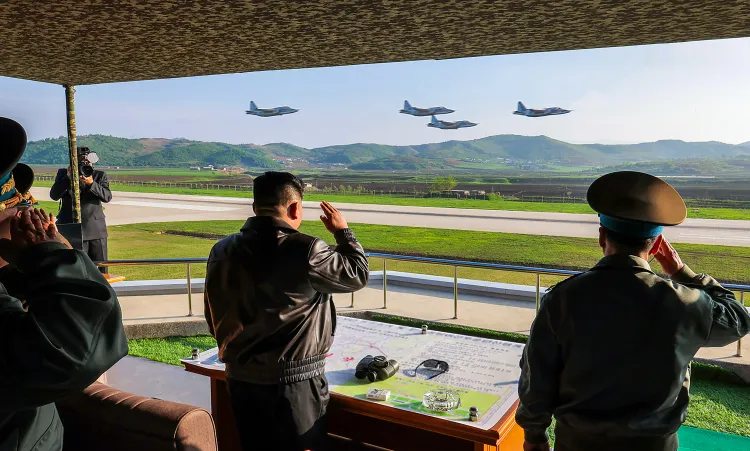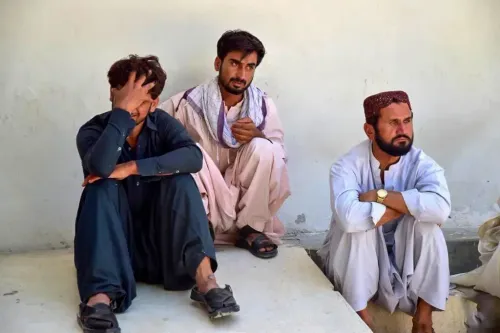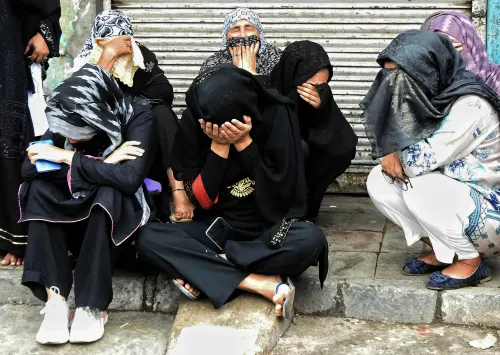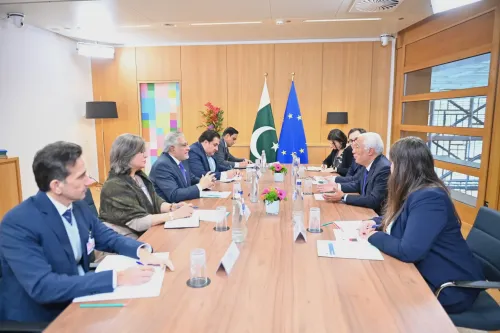Why Does North Korean Leader Criticize South Korea-US Drills?

Synopsis
Key Takeaways
- Joint drills are defensive in nature.
- North Korea views them as provocative.
- Military information support is critical in modern warfare.
- Allied training strengthens defense posture.
- Practical training is essential for readiness.
Seoul, Aug 19 (NationPress) The South Korean Presidential Office stated on Tuesday that the criticisms made by North Korean leader Kim Jong-un regarding the annual joint military exercises between South Korea and the United States constitute a repetitive response. They emphasized that these drills are fundamentally defensive.
Presidential spokesperson Kang Yu-jung addressed Kim's remarks, which condemned the Ulchi Freedom Shield exercise as a demonstration of the most hostile and confrontational attitude from South Korea and the US towards North Korea, according to a report by Yonhap News Agency.
"Our position consistently maintains that the Ulchi exercise is a defensive drill," Kang informed reporters.
Pyongyang has historically criticized the allied drills, viewing them as rehearsals for invasion.
On the same day, the chairman of the Joint Chiefs of Staff (JCS) and the commander of US Forces Korea (USFK) highlighted the crucial role of combined military training in enhancing the allies' defense posture to promote peace on the Korean Peninsula, as stated by the JCS.
During a visit to a military unit while the Ulchi Freedom Shield exercise is ongoing, JCS Chairman Admiral Kim Myung-soo and USFK Commander General Xavier Brunson, who also leads the South Korea-US Combined Forces Command, stressed the significance of such training.
"Our training is intricate, combined, joint, and all-domain, ensuring our readiness to tackle any challenge," Brunson remarked during his visit to the Combined Military Information Support Operations Component Command. "Our capability to fight tonight and succeed tomorrow is rooted in how we train today."
He asserted that the South Korea-US alliance represents an asymmetric advantage capable of effectively countering any threats posed by adversaries.
Kim emphasized the importance of military information support operations in modern warfare and urged maximum efforts to enhance combined operational capabilities through effective communication.
Both Kim and Brunson acknowledged that an ironclad combined defense posture serves as a formidable strength that can support peace initiatives on the Korean Peninsula, noting that these capabilities can only be fortified through practical training, per the JCS.
The visit coincided with the launch of South Korea and the United States' summer drills, which began on Monday and will run for 11 days until August 28.
North Korean leader Kim Jong-un condemned the joint exercise, interpreting it as a declaration of intent to ignite a war, and called for a rapid expansion of nuclear capabilities, as reported by Pyongyang's state media on Tuesday. Conversely, Seoul and Washington have reiterated that the annual drills are strictly defensive.









